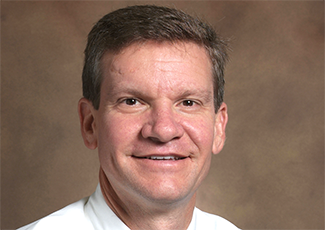Global Futures Scientists and Scholars
Nancy Gonzales named ASU's next university provost
Gonzales is currently dean of natural sciences, overseeing six interdisciplinary schools and departments. She has been active in developmental and clinical psychology research with culturally diverse populations for more than 25 years.

Women entrepreneurs: building inclusivity and tackling world-scale challenges
Sustainability scholar Amanda Ellis co-hosted this episode of the Intersectionality and Inclusion series, sponsored by the Saïd Business School, University of Oxford.
Gerber, Maynard, Neuberg elected AAAS Fellows
Three sustainability scientists were among five ASU faculty to be recognized by the American Association for the Advancement of Science for their career contributions to science and innovation.
Morton to lead ASU's Knowledge Enterprise
Statistician uses data to change lives for the better, was drawn to university's mission of inclusion. When she joins ASU on Feb. 1, Morton will be the first woman to take the reins of Arizona State University’s Knowledge Enterprise.
Dec 10: Virtual Seminar on Transportation Electrification
SRP and ASU faculty, staff and students are invited on Dec. 10, 2020, from 10 a.m. to 2:30 p.m. to participate in an informative seminar and discussion around enhancing sustainable transportation in Arizona. Registration is required.
What one action should the Biden Administration take on science, tech, climate?
ASU has been invited to put forth authors for Future Tense's consideration. Pieces will be about 800-1,000 words, and will be running between now and Inauguration Day.
Ellis is co-author of Gender Equality and Governance Index report
A new report brings together some of the most up-to-date and comprehensive databases on gender discrimination in the world, to cast a light on why the economic and political empowerment of women is vital not just for human prosperity but also for our future peace and security.
Workshop: Progress, challenges and opportunities for sustainability science
The 11/30-12/2 workshop will review the state of cutting edge research that can help societies meet the goals of sustainable development, and provide scientific input to the ongoing discussions of the National Academy of Sciences (NAS) Grand Challenges in Science initiative and the Nobel Prize Summit “Our Planet, Our Future” that will be held in Spring 2021.
United Nations 75th Anniversary Dialogue: Faculty experts provide insights
ASU hosted an event seeking technical, scientific and academic input from ASU faculty. Twenty participants joined the event to share observations, experiences and recommendations regarding the next 25 years of the United Nations.
Call for Abstracts - Commons in Space conference
As a virtual conference within a series of conferences organized by the International Association for the Study of the Commons (IASC), the Interplanetary Initiative will facilitate a discussion between space researchers and scholars studying more traditional commons.
NSF opportunity for mid-career faculty across directorates
Nov. 23: Knowledge Enterprise research development office hosts a kick-off to learn more about the proposal requirements.
New funding opportunity: Strengthening American Infrastructure
Strengthening American Infrastructure invites proposals for workshops and early concept grants for exploratory research (EAGER) that incorporate scientific insights about human behavior and social dynamics to better design, build, rehabilitate and maintain strong and effective American infrastructure.